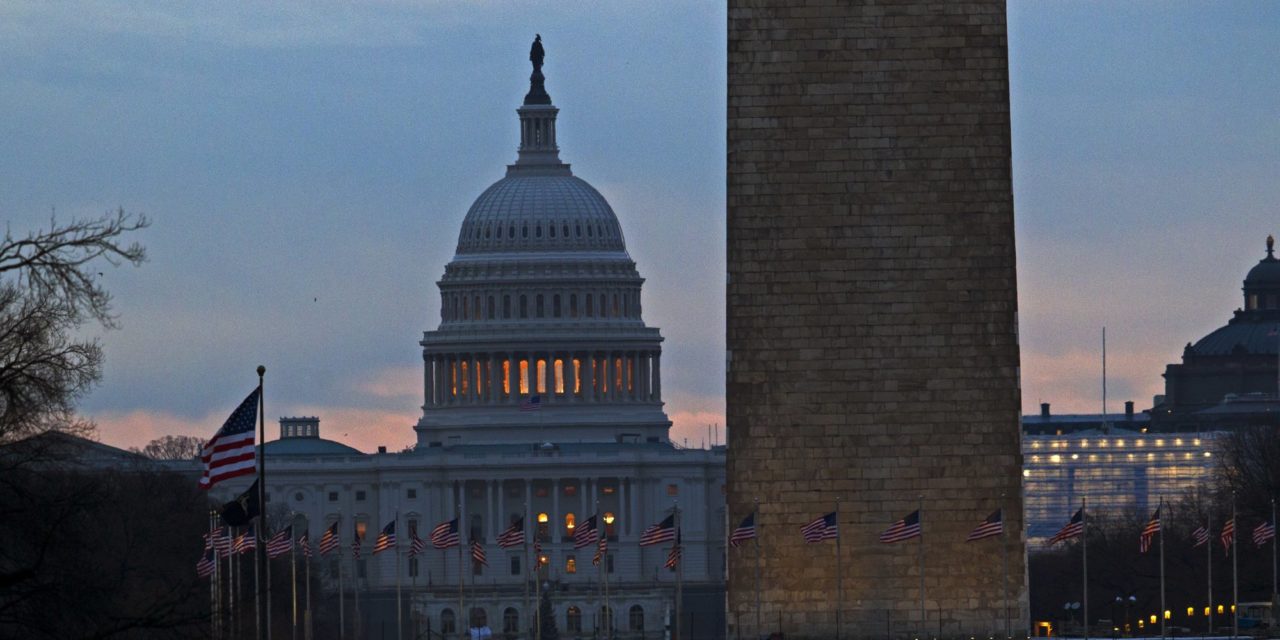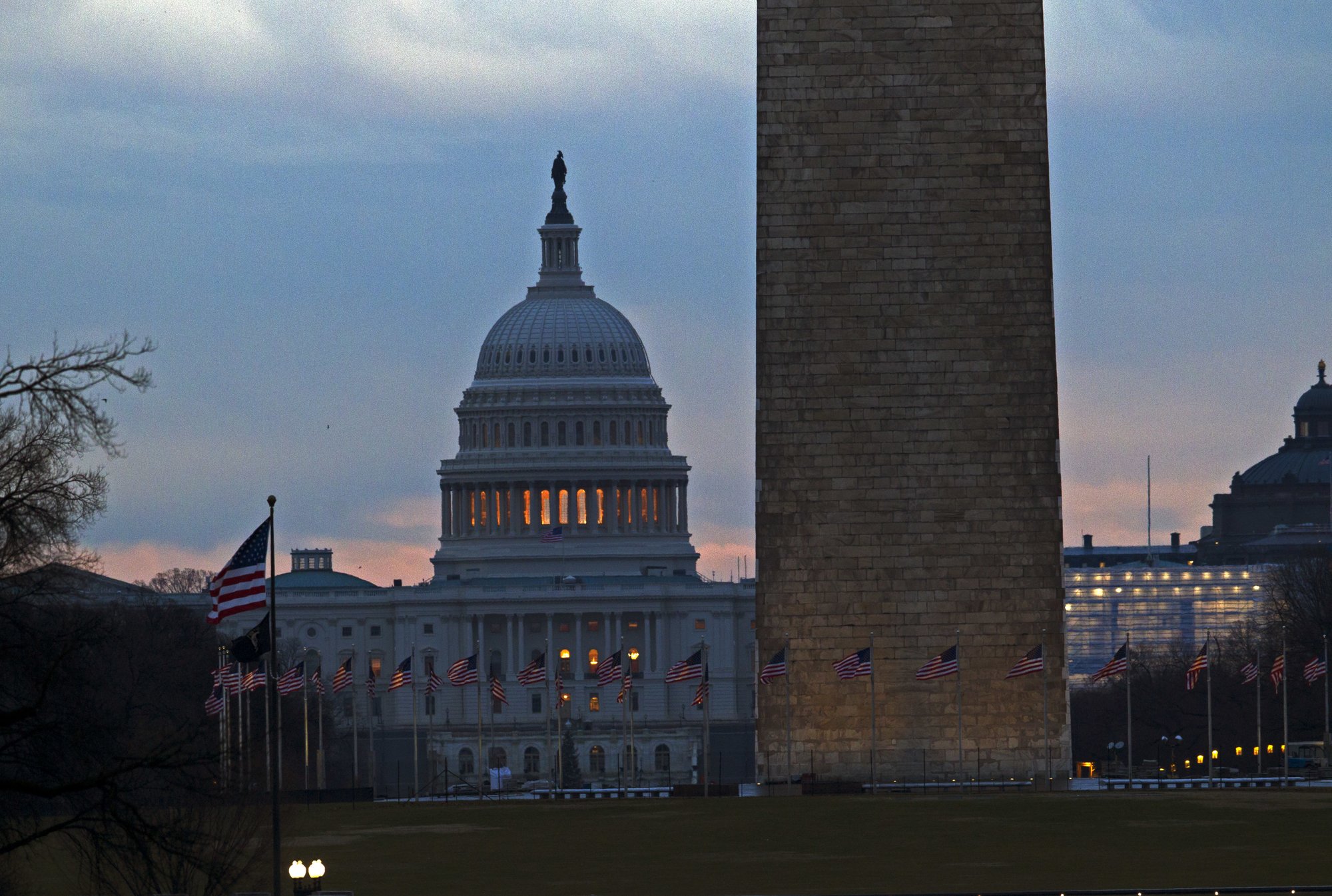With shutdown negotiations deadlocked, the White House planned further meetings with rank-and-file lawmakers Wednesday, as the Trump administration acknowledged the prolonged standoff over his border wall funding demands is having a greater economic drag than previously thought.
President Donald Trump has invited a bipartisan group of lawmakers known as the Problem Solvers caucus to talks, but it was far from clear the session would yield a breakthrough on the shutdown’s 26th day.
The president’s economists, meanwhile, said the shutdown was having a greater impact than previously projected.
In a call with reporters, White House Council of Economic Advisers chairman Kevin Hassett said Tuesday the shutdown is reducing economic growth more than predicted. He said the “hope is this resolves quickly and that it won’t have a major impact on the long-run outlook, even though it does have a major impact on individual lives.”
White House spokeswoman Sarah Huckabee Sanders told reporters Wednesday that the economy remained strong.
“I know there has been some impact, but at the same time we’re focused on the long term economic principles the president has laid out,” she said.
The House and Senate have announced they will cancel an upcoming recess week if the shutdown continued, which seemed likely.
Trump has not moved off his demand to have Congress provide $5.7 billion to build his promised border wall with Mexico. Democrats say they will discuss border security once the government has reopened, but House Speaker Nancy Pelosi is refusing money for the wall they view as ineffective and immoral.
The president, on a conference call with supporters, showed no signs of backing down.
“We’re going to stay out for a long time, if we have to,” Trump said. “We’ll be out for a long time.”
With some 800,000 federal employees furloughed or working without pay, Trump suggested the partial shutdown, which has clogged airport security lines and shuttered federal agencies, was going smoothly.
“People are very impressed with how well government is working with the circumstances that we’re under,” Trump said.
Behind the scenes, though, the administration — and its allies on Capitol Hill — are warily eyeing the next payday, hoping to reach a resolution before next week’s Tuesday deadline, when they’ll need to prepare the next round of paychecks for workers who have been seeing zeros on their pay slips.
“There is definitely a sense that there is a deadline approaching, which would be next Tuesday, to make sure that we’re able to solve this problem,” said Mercedes Schlapp, a White House spokeswoman.
Trump, who a week ago seemed intent on declaring a national emergency in order to build the wall, has turned his attention back to Congress as polling shows he is taking much of the blame for the standoff.
On Tuesday, the White House had invited rank-and-file lawmakers to lunch with Trump at the White House as part of a strategy to build support from centrist Democrats and newly elected freshmen, including those from areas where the president is popular with voters. But none of the House Democrats took Trump up on the offer.
Trump ended up lunching with a handful of lesser-known House Republicans.
Trump urged his supporters to call the offices of Democratic lawmakers to press them to support the wall to reopen the government
Republicans complain that Democrats are the ones who are refusing to budge, and they say it’s up to Pelosi to bring Trump a new offer.
“The president — who is not well-known for flexibility — has been more flexible than the other side,” said Sen. Roy Blunt of Missouri, a member of GOP leadership.
Meanwhile, the effects of the partial government closure intensified around the country, with workers facing deepening anxieties about mortgage payments and unpaid bills.
Some lawmakers are reluctant to return home for next week’s planned recess — some were planning their first town halls of the new year — as the standoff deepens. JPMorgan’s Jamie Dimon told reporters Tuesday that he expects U.S. economic growth to slow to nothing this quarter if the government shutdown continues.
“I hope it doesn’t go to the end of the week,” said Sen. John Thune of South Dakota, the No. 2 Senate Republican. “I’d like to see us have a breakthrough here.”
But hopes of side deals being cut by the White House seemed unlikely, as did the prospect of groups of senators meeting privately to forge a compromise.
Said Sen. Chris Coons, D-Del., “The shutdown will eventually take us to a place where the average American is angry at and sick of all of us.”



